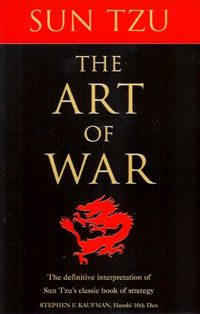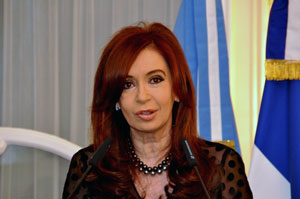20 May 2013 | Americas, News
The former journalist asks not to use his real name. So I will call him Francisco. He had been at the height of his career in 2007, in the vibrant city of Torreon, in northern Mexico, when he received a call from an unknown man, Ana Arana reports.
The man said he wanted to drink “lemonade” with him, slang he knew drug traffickers used when they wanted to discuss something with journalists. The journalist drove to a meeting place outside the city. There he found other colleagues who had also been summoned. The man showed them a newspaper story. “Here you say we fled a scene,” he said angrily, “we never flee, we are not cowards, and you can’t use that word to describe our activities,” he emphasized, showing the story in a newspaper.
(more…)
17 May 2013 | Europe and Central Asia, News
An election is always a good litmus test for a country’s media freedom — particularly in Bulgaria. It consistently ranks last amongst European Union members for media freedom, and the US Department of State called its “gravely damaged media pluralism” one of its most pressing human rights problems, Georgi Kantchev reports.

In the run-up to the 12 May parliamentary election, former ruling party GERB received the most mentions in Bulgaria’s media, ahead of the Bulgarian Socialist Party (BSP), and the Turkish minority movement DPS — mirroring the election results.
Media coverage, however, does not accurately capture the gap between parties. GERB was mentioned 3,642 times in election coverage — 80 per cent more than BSP. In the polls, the difference between the two parties was less than four per cent.
Bulgaria’s media grants over-exposure to those in power, and the industry seems to quickly adapt to a new political situation. While the New Bulgarian Media Group (NBMG) editorial stance was against the GERB in the 2009 elections, it changed its tune almost overnight after the party’s victory.
Given the close ties between the media and political parties in the country, distorted election coverage is not very surprising. For instance, a high-ranking DPS member owns the NBMG, which owns the Telegraph, the highest circulated newspaper in the country.
The tangles between politics and the Bulgarian media has drawn the attention of the Organisation for Security and Cooperation in Europe (OSCE). In a report released ahead of the election, the body expressed concerns over the “growing concentration of media ownership in the hands of a restricted circle of business people.” According to the OSCE, this “raised concerns about the independence of media from undue economic and political pressure.”
“Most media find themselves in a passive position and practically shun their most important function — to build an informed public opinion, and through that to support the political choice of the people”, says Orlin Spassov, professor of journalism at the University of Sofia. “The result of this campaign was a deficit of informed choice.”
Bulgaria has measures put in place to distinguish editorial content from political advertisements for broadcast media, but not for the press. The OSCE pointed out that “paid media coverage is often not labelled as such, thus potentially misleading the audience about the nature of the reporting.”
Bulgaria’s murky relationship with the press also creates trouble for journalists, who sometimes feel pressure for their reporting. In April Boris Mitov, a journalist for news site Mediapool.bg was summoned for questioning by prosecutors after writing an article accusing a Sofia deputy city prosecutor of illegal wiretapping. The prosecutors placed pressure on Mitov to reveal his sources, and after he refused to do so, they reportedly told him that he could face up to five years in prison for disclosing state secrets.
More troubling is the culture of self-censorship arising from pressure placed on journalists from business groups. Most common is economic pressure — which trickles down from media outlet owners to editors and reporters. The NBMG group, for instance, is largely financed by the Corporate Commercial Bank (CCB). The CCB has also held a large percentage of state-owned enterprises in the transport, energy, and defence sector — which means that NBMG is practically financed with public funds. This helps explain why the group is often cosying up to those in power.
While infrequent, sometimes journalists face direct threats from businesses. After writing a series of articles critical of a local business group last year, investigative journalist Spas Spassov received Sun Tzu’s book The Art of War in the post. Included was a note quoting a line from the book: “You should avoid those you can’t either defeat or befriend.”
The most recent election results, however, have left an unclear picture of who is in power: since no party has gain
ed a majority in Parliament. Coalition building was undermined by a deeply polarising election — which means that the media will have a difficult time knowing who to pledge allegiance to.
13 May 2013 | Americas
In Argentina, media organizations take sides: for or against the government. Graciela Mochkofsky tells the story behind the turf war between President Fernández de Kirchner and Grupo Clarín.

Argentina’s President Cristina Fernández de Kirchner Photo: Demotix
Argentina has an extraordinary number of newspapers, magazines, radio and TV stations. Greater Buenos Aires, the largest urban centre where 13.5 million people live has 18 newspapers, 37 TV channels (five analogue and 32 digital), seven news channels, and 550 AM and FM radio stations. Does this mean that it is a thriving market, with highly educated, enlightened audiences, where the development of the media is directly linked to prosperity?
No. The reason Argentina boasts a huge proliferation of media organisations is strictly political.
(more…)
8 May 2013 | Newswire
The discovery of a financial scam at a company in India’s West Bengal state is shining a light on the relationship between politicians and media owners, Mahima Kaul reports.
The firm in question, Saradha Group, had risen to become a financial empire over the past eight years under boss and owner Sudipta Sen. The company has business interests ranging from construction to travel to exports and agriculture. When the “chit fund” scandal came to light — with an estimated loss of $4-6 billion (US) to investors — Sen fled to Jammu and Kashmir, where he was ultimately arrested.
A chit-fund scandal, or “cheat fund” as some sections of the media are calling it, operates like a ponzi scheme. Sen duped many small and middle class investors into giving him their life savings, with promises of great returns. He managed to evade the regulators by using a nexus of companies to launder the money. The money collected was used to recklessly invest in a range of industries — including a mismanaged media empire. The government of West Bengal has had to set up a $2.5 million fund to ensure that the small investors are not bankrupted.
 In a letter to the Central Bureau of Investigation (CBI), Sen claims to have been misled by a group of individuals who cheated investors by using his name, unbeknownst to him. However, the letter also shows how political patronage is obtained through acquiring media houses.
In a letter to the Central Bureau of Investigation (CBI), Sen claims to have been misled by a group of individuals who cheated investors by using his name, unbeknownst to him. However, the letter also shows how political patronage is obtained through acquiring media houses.
Saradha Group owns 18 newspapers and TV channels in West Bengal and Assam. These include Bengal Post, Sakalbela, Kalam, Paroma, Azad Hind, Prabhat Varta, Seven Sisters Post – and the TV channels, Tara Musik, Tara Newz, South Asia TV, and Channel 10, all under the umbrella of Saradha Printing and Publishing Pvt Ltd.
As Indian media blog the Hoot reports, “many senior journalists then suspected that media ownership was a matter of business strategy to establish the company’s credentials and also a bid to emerge as the mouthpiece of the major political party and perhaps get benefits in return.”
This view is supported by BBC journalist Sudhir Bhowmik, who says he left a job with the Saradha Group after he was told to “go soft on some leaders.”
It appears that Sen bought and built a media empire, allegedly on the behest of politicians of the ruling Trinamool Congress party, to play the part of a proganda-spinning machine for the government. This is no small feat – the net worth requirement of an applicant seeking to launch a news channel had been raised by the government from approximately $555,500 to $3,703,000, ostensibly to keep away “fly by night” operators away. But since Sen had already raised his financial portfolio, by dubious financial practises as we know now, he was able to take this step to becoming a media baron.
The curious case of the Saradha Group media empire gets murkier as the story unravels. In his letter to the CBI, Sen also claims to have been regularly blackmailed by Kunal Ghosh and Srinjoy Bose — two sitting Trinamool Congress members of the Upper House — into setting up his news channels. He also says he paid Ghosh $28,000 USD a month. Ghosh, now on the back foot, claims that he was simply a “salaried employee” and that he had “no authority to sign cheques.”
Sen’s use of the media empire to build political clout and protection is now being outlined by the national media. Influential members of West Bengal’s ruling Trinamool Congress party have been closely aligned with the media group. But some politicians are now distancing themselves from the group, despite having benefited from positive propaganda from its media outlets.
In India, which now has over 800 private satellite channels, media houses often favour particular political parties, and many are actually directed owned by politicians themselves. Amid growing unease, the Ministry of Information and Broadcasting has asked all channels to furnish details of their shareholding patterns and equity share. Both the ministry and the Telecom Regulatory Authority of India (TRAI) have been looking to ways to ensure pluralism and diversity in the Indian media, and curbing monopolistic growth. They feel tracking ownership patterns might be one way of finding out which groups and individuals are involved in unethical behaviour like corporate and political lobbying, biased analysis and forecast in the political arena and sensationalism of news. The ministry has made it clear that if it finds any media group in violation of its license agreement – including shareholding patterns – it is ready to cancel licenses.
Meanwhile, another unfortunate result of the scandal is that more than 1,400 journalists are out of jobs, while some of Sen’s Channel 10 employees have filed a complaint with the police over non-payment of salaries by Sen and Ghosh.



 In a
In a